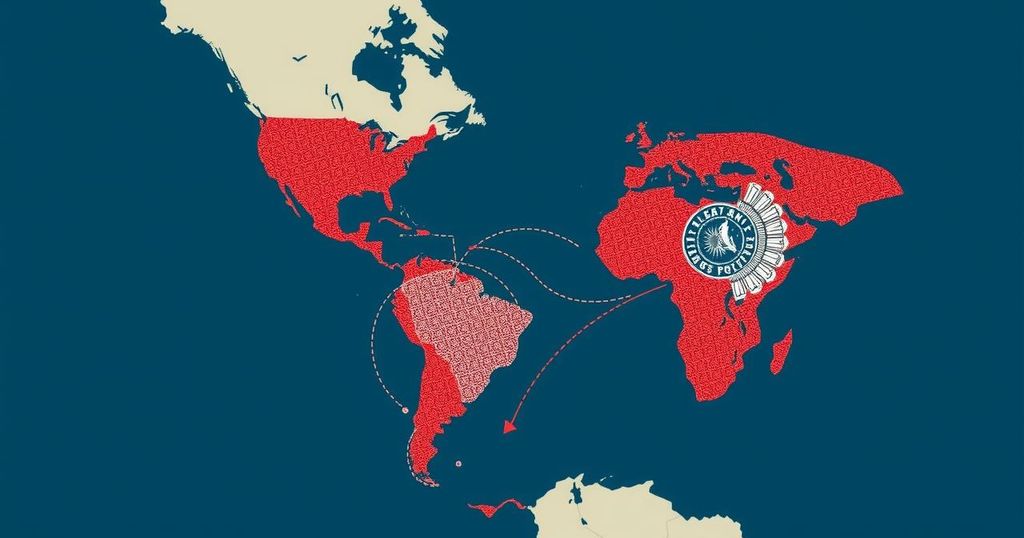President Biden’s recent visit to the Amazon forest signifies an effort to enhance US-Latin America relations, particularly regarding environmental concerns. With pledges totaling $550 million to Amazon initiatives and a finance coalition aimed at raising $10 billion for ecological projects, the visit seeks to address climate demands. However, it raises questions about its effectiveness and highlights enduring contradictions in US foreign policy in the region.
On Sunday, President Joe Biden made history by becoming the first sitting US president to visit the Amazon rainforest. This visit underscores a multifaceted approach to US-Latin America relations and highlights the Biden administration’s commitment to addressing environmental concerns. The visit aims to strengthen collaborations focused on climate change, with Biden announcing $500 million initially and an additional $50 million toward the Amazon Fund. Furthermore, he introduced a finance coalition aimed at attracting $10 billion for eco-friendly initiatives by 2030. Biden’s engagement also responds to rising environmental demands among Latin American nations, particularly Brazil, where climate change governance is a priority. The Brazilian government has advocated for substantial financial commitments from developed countries to support its climate action initiatives. Hence, Biden’s trip serves to position the US as a global leader in combating climate change and environmental degradation, although the visit’s timing raises questions about its substantial impact. A critical underlying aim of the visit is to preserve US influence in Latin America, historically viewed as its sphere of influence. Washington seeks to demonstrate its commitment through enhanced strategic investment in the region and robust cooperation in addressing climate-related challenges. However, the practical outcomes of Biden’s visit might fall short, rendering his promises vulnerable to future political shifts. The US’s approach toward Latin America is plagued by enduring contradictions. Although various initiatives may temporarily appease regional discontent with US interventions, differences in priorities complicate the relationship. Latin American nations prioritize domestic social and economic challenges, whereas Washington links cooperation to its national security interests. As a result, achieving a balanced partnership appears increasingly elusive, with impending cooperation likely to be characterized by ongoing contradictions and conflicts.
The article discusses the recent visit of US President Joe Biden to the Amazon rainforest, marking a significant moment in US-Latin America relations and environmental policy. It highlights the contrasting objectives and historical context of US influence in the region, particularly concerning climate change initiatives and foreign policy dynamics. The broader implications of Biden’s trip and its limitations in addressing profound bilateral contradictions are also examined, pointing towards the complexity of cooperation between the US and Latin America driven by differing priorities.
In conclusion, President Biden’s visit to the Amazon rainforest symbolizes an attempt to rekindle US relations with Latin America, particularly around environmental concerns. Despite commitments made during the visit, questions remain regarding the actual impact and feasibility of these promises, especially in light of potential policy shifts. The historical contradictions in US-Latin America relations persist, underscoring the challenges of forging a meaningful and equitable partnership moving forward.
Original Source: www.globaltimes.cn






